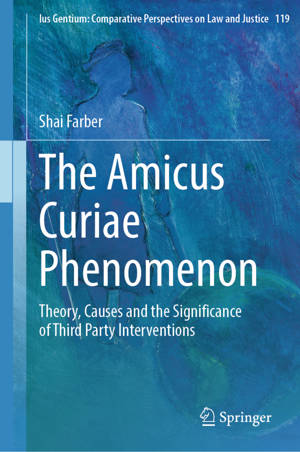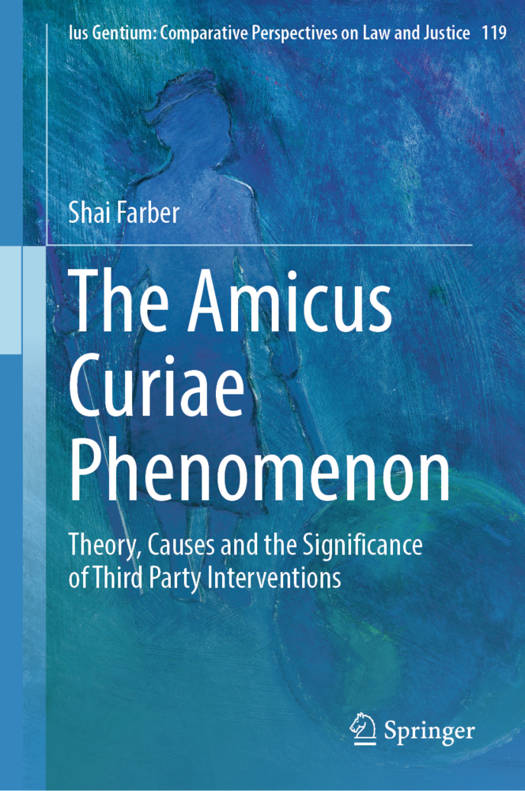
- Afhalen na 1 uur in een winkel met voorraad
- Gratis thuislevering in België vanaf € 30
- Ruim aanbod met 7 miljoen producten
- Afhalen na 1 uur in een winkel met voorraad
- Gratis thuislevering in België vanaf € 30
- Ruim aanbod met 7 miljoen producten
The Amicus Curiae Phenomenon
Theory, Causes and the Significance of Third Party Interventions
Shai FarberOmschrijving
This book offers a thorough analysis of the Amicus Curiae phenomenon, emphasizing its critical role in modern legal systems. The book reveals how these interventions influence judicial decisions, legislative processes, and societal norms by presenting third-party perspectives through amicus briefs.
Delving into the historical development and global adoption of Amicus Curiae, the book provides insights into its benefits and drawbacks. Readers will learn about the various types of amici, the breadth of issues they address, and the diverse courts that accept these briefs. The author's extensive research and case studies from multiple legal systems highlight the transformative power of third-party interventions in ensuring justice and public transparency.
The book explores real-world examples where amicus briefs have played pivotal roles in landmark cases, from human rights advancements to environmental protections. It discusses the strategic importance of these briefs and how they democratize the legal process by allowing more voices to be heard. By fostering a deeper understanding of the complexities and significance of Amicus Curiae, this book empowers readers to appreciate the intricate interplay between law and societal change.
Ideal for legal professionals, academics, and anyone interested in law and society, this book is an essential guide to understanding the impact of Amicus Curiae on the judicial process. Whether you are a seasoned lawyer, a policymaker, or a curious reader, this book provides a comprehensive and engaging exploration of one of the most influential elements in contemporary jurisprudence.
Specificaties
Betrokkenen
- Auteur(s):
- Uitgeverij:
Inhoud
- Aantal bladzijden:
- 330
- Taal:
- Engels
- Reeks:
- Reeksnummer:
- nr. 119
Eigenschappen
- Productcode (EAN):
- 9783031672248
- Verschijningsdatum:
- 26/09/2024
- Uitvoering:
- Hardcover
- Formaat:
- Genaaid
- Afmetingen:
- 156 mm x 234 mm
- Gewicht:
- 666 g

Alleen bij Standaard Boekhandel
Beoordelingen
We publiceren alleen reviews die voldoen aan de voorwaarden voor reviews. Bekijk onze voorwaarden voor reviews.













